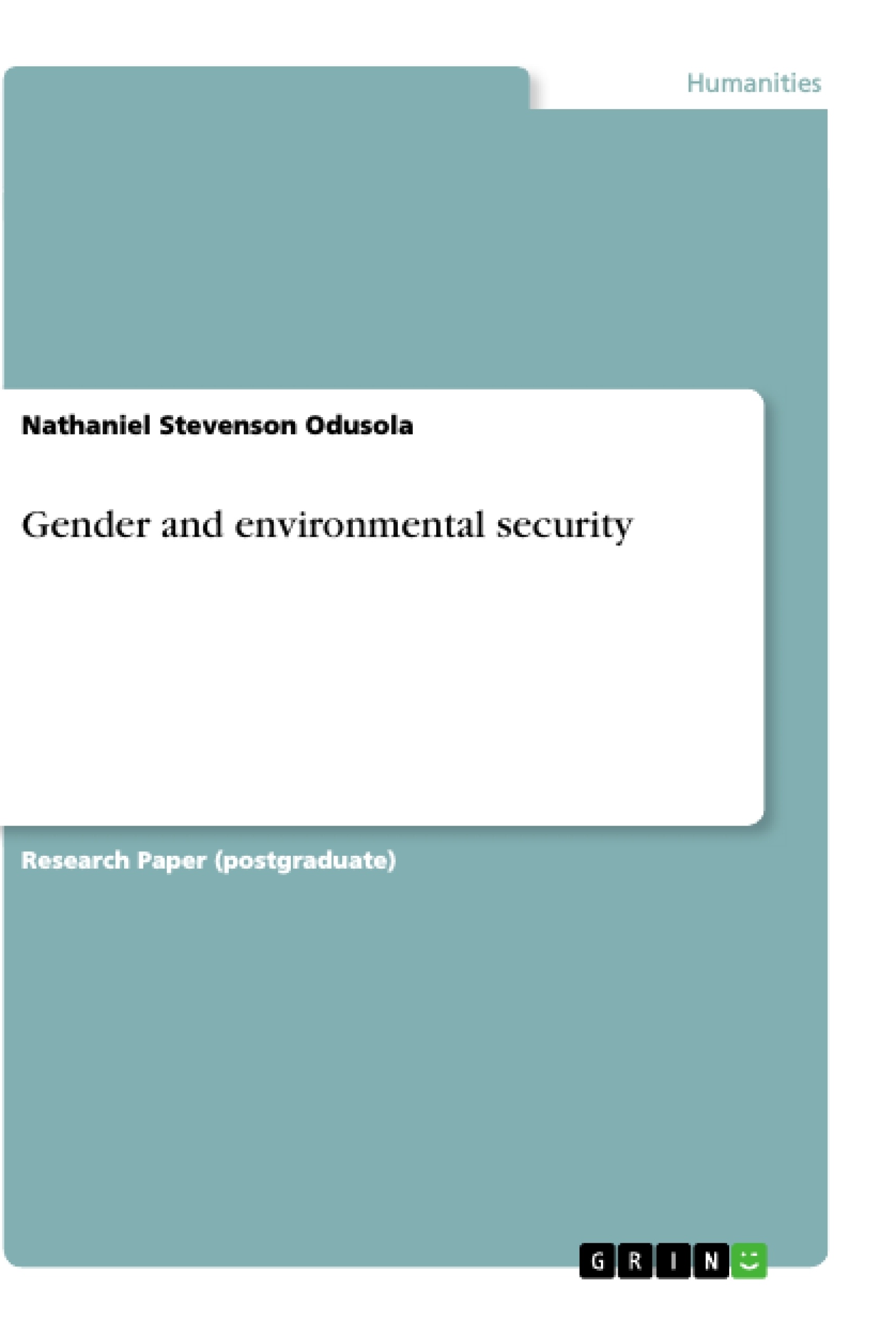This research essay examined the experiences of women as regards environmental insecurity, as well as the gendered ideas of virtue and vulnerability, on climate change. The argument that men activities are more harmful to the environment is valid because men are adventurous. They develop all the different forms of technologies that hurt the environment. Whereas women are virtuous because they are sensitive to the environmental impact of humankind, thus they are always on the lookout for new ways to protect the environment from degradation.
The fact that women are less empowered particularly in under-developed nations makes them vulnerable to the adverse effect of climate change. This aspect of the society where women have no voice in the decision making of the society makes women vulnerable to the outcome of the policy adopted by the male counterparts. That is the reason analysts and policymakers alike are calling for policy mainstreaming on climate change that puts the women at the forefront of policy formulation and administration. The consequence of not allowing women to take part in policy formulation and administration concerning the environment is that any policy made concerning climate change would be ineffective as the male counterparts would not be able to relate issues that affect the women adequately. The various school of thoughts that argued for and against the adverse impact of environmental degradation against women acknowledge the fact that women are vulnerable.
The less developed nations are, the worse affected because they lack the relevant technology to manage the impact of climate change. Another reason for the impact of climate change has to do with being unable to manage conflict. The challenges that women face; climate change have to do with water management, the effect that the environment encounter cannot be under-estimated when analyzed alongside the hardship it brings to women. The impact of climate change affects the supply of water apart from other health implications that climate change has on society. Women are vulnerable to environmental difficulties. The argument that women are more environmentally virtuous and can predict the climate more efficiently is valid.
Inhaltsverzeichnis (Table of Contents)
- Introduction
- Gendered Ideas
- Women virtue and vulnerability
Zielsetzung und Themenschwerpunkte (Objectives and Key Themes)
This research essay investigates the impact of climate change on women, examining how gendered notions of virtue and vulnerability influence the current debate and policy surrounding environmental insecurity. The essay explores the experiences of women in various contexts, considering their roles in environmental protection, their vulnerability to climate-related risks, and the policy responses that aim to address these issues.
- The intersection of gender, environment, and climate change
- The impact of climate change on women's livelihoods and well-being
- The role of gendered perceptions in shaping policy responses to climate change
- The importance of considering women's voices and perspectives in climate change mitigation and adaptation efforts
- The potential for empowering women to be agents of change in addressing environmental challenges
Zusammenfassung der Kapitel (Chapter Summaries)
The introduction sets the stage for the research by exploring the multifaceted nature of women's experiences in relation to climate change. It highlights the contrasting perspectives of women as vulnerable and virtuous in the context of environmental insecurity, emphasizing the need for gender-sensitive policies.
The section on "Gendered Ideas" examines the complexities of how gendered concepts shape the understanding and response to climate change. It explores the argument that both men and women are vulnerable to the effects of climate change and analyzes the role of media in publicizing its impacts, particularly in regions affected by migration.
Schlüsselwörter (Keywords)
This research focuses on the intersection of gender, climate change, and environmental insecurity. Key concepts include gendered ideas of virtue and vulnerability, women's experiences in relation to climate change, policy responses, gender mainstreaming, environmental justice, and women's empowerment.
Frequently Asked Questions
How are women specifically affected by climate change?
Women, especially in under-developed nations, are often more vulnerable due to lack of empowerment, limited resources, and their roles in water management and household health.
What does "gendered ideas of virtue and vulnerability" mean?
It refers to the perception of women as naturally more sensitive to the environment (virtuous) while simultaneously being more at risk from climate impacts (vulnerable).
Why is gender mainstreaming important in climate policy?
Without including women in decision-making, policies often fail to address the specific challenges women face, making environmental strategies less effective.
Are men's activities considered more harmful to the environment in this study?
The essay explores the argument that traditionally male-dominated technological developments have historically caused more environmental degradation.
What role does water management play in gendered environmental security?
In many societies, women are responsible for water collection; climate-induced water scarcity thus increases their daily hardship and health risks.
- Citar trabajo
- Nathaniel Stevenson Odusola (Autor), 2018, Gender and environmental security, Múnich, GRIN Verlag, https://www.grin.com/document/923217



